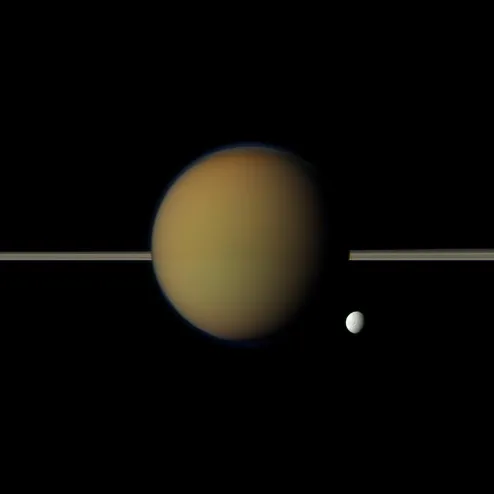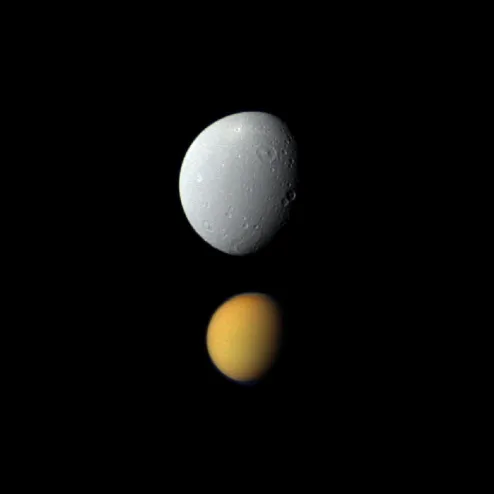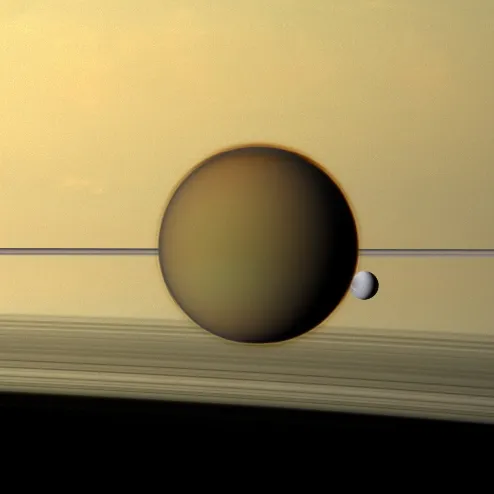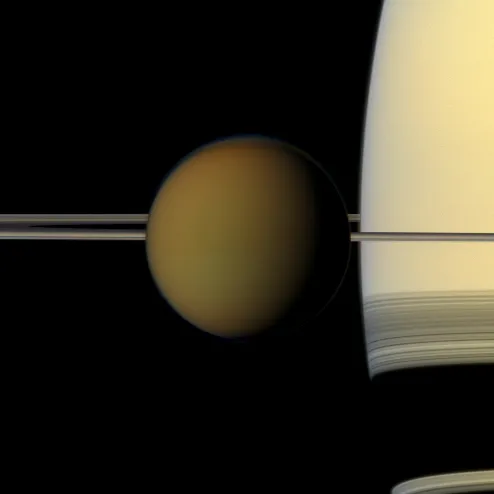
Saturn's tiny icy moon Tethys peeps out behind its bigger brother Titan, with Saturn's rings bisecting the image.
Credit: NASA/JPL-Caltech/Space Science Institute
Just in time for Xmas, NASA has released new images of Saturn and its moons, taken by the Cassini mission's narrow-angle camera in May 2011. The first image, above, was taken looking away from Saturn towards Titan at a distance of 2.3 million km (1.4 million miles), with Tethys also in shot some 3.8 million km (2.4 million miles) away.

Titan, bottom, looks much smaller than Dione, top – but only because it's much further away. It's actually nearly five times larger
Credit: NASA/JPL-Caltech/Space Science Institute
In the second of the Cassini images, we can see both Titan and Dione, but the relative distances of the two planets mean that their sizes appear to be reversed. At 5,150km (3,200 miles) across, Titan is actually much larger than Dione, which is just 1,123km (698 miles) across, but because the two planets are 1.1 million km (684,000 miles) and 136,000 km (85,000 miles) away respectively, Dione appears larger in the picture.

Titan and Dione again, with Saturn's ring system in the background
Credit: NASA/JPL-Caltech/Space Science Institute
This image of Titan and Dione gives a better sense of the two satellites' actualrelative size. In this picture, Titan lies 2.3 million km (1.4 million miles) distant, while Dione is 3.2 million km (2 million miles) away.

This final image shows Titan and the limb of Saturn
Credit: NASA/JPL-Caltech/Space Science Institute
Finally, we see mighty Saturn itself. This natural-colour image of the planet with Titan, its largest moon sitting alongside, gives a sense of how big the gas giant really is.
